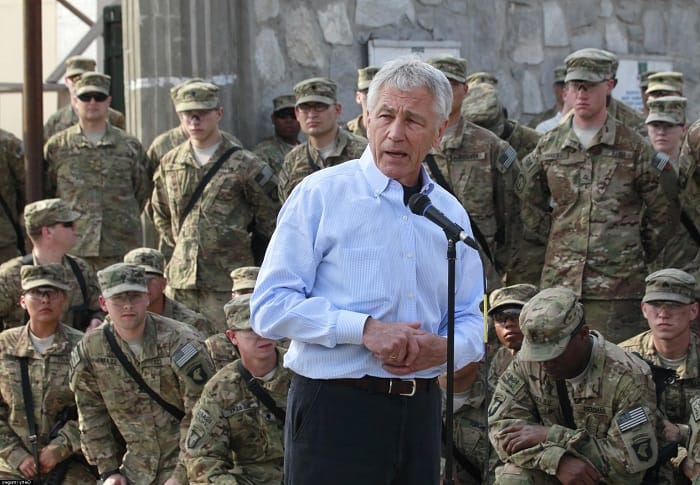Military Tuition Assistance essay
The Military Tuition Assistance is a well-known public policy that ensures certain government benefits to military service members of all branches of the Armed Forces. This public policy has been developed to provide support to military service members with the cost of military tuition. Military Tuition Assistance is considered to be the service that has direct relation to paying for college courses and that has always been highly valued by American users. However, today it raises certain problems that affect future life of the participants. First of all, the benefits provided by Military Tuition Assistance are too difficult to obtain. Second, these benefits are not substantial enough to retain soldiers, marines and other military men. Much has already been done to address the above mentioned problems. The resolution is to shift the policy to better screening students who are applying for the Military Tuition Assistance courses (Mehay & Pema, 2010). The environment that surrounds the issues of Military Tuition Assistance is favorable to finding the proper resolutions to the identified problems, although there are still some problems that challenge the resolution to the issues of Military Tuition Assistance.
The major goal of this paper is to discuss the environment that surrounds the issues of Military Tuition Assistance. The major problems and assets that either support or challenge the resolution to the identified problems will be identified.
The major problems that challenge the resolution
to the identified issues of Military Tuition Assistance
The major problems that challenge the resolution to the identified issues of Military Tuition Assistance include the lack of effective governmental support in the selection of the Armed Forces personnel, including soldiers, marines, guardsman and airmen. There are several effective programs that have been developed to support the major education goals, including up to “100% Tuition Assistance for college courses taken during off-duty hours” (Military Tuition Assistance, 2014). However, these programs are not suitable for all the Armed Forces personnel.
As practically each military service is focused on its own criteria for eligibility in the process of students’ screening for the Military Tuition Assistance courses, the application process has certain restrictions. For example, for the Air Force Service, active duty and reserves are eligible members; for Marines, they are active duty only, while for Navy Service, the eligible members are active duty and naval reserves in AD status (Military Tuition Assistance, 2014). Government does not guarantee success in the application process to all applicants because of the criteria for eligibility.
Besides, Military Tuition Assistance, as a public policy developed to enhance education of military personnel, fails to place emphasis on income inequality. According to B. Guy Peters (2012), any public policy can be influenced not only by the persistent unemployment, but also by the growing income inequality in human society.
The major assets that support the resolution
to the identified issues of Military Tuition Assistance
There are certain assets that support the resolution to the identified issues of the Military Tuition Assistance policy. One of the major assets is the ability to improve the lives of young people through Military Tuition courses, promoting their careers in the Armed Forces. It has also been found that more successful students enrolled in the Military Tuition courses are more mature, goal- and career oriented (Mehay & Pema, 2010). The resolution aimed at shifting the public policy to better screening students who are applying for the Military Tuition Assistance courses can be supported by the idea that “military service for some people is what saves them from the chaotic existence of an undirected life” (Viola, 2008, p. 12).
As a matter of fact, the military services provide young people with everything that is necessary for personality and personal growth, including motivation, effective reward strategies, the proper values and ethical principles, and even leadership skills. Moreover, “military forces throughout history have espoused great principles in common: unity, discipline, courage, dedication, and vigilance in service to country” (Viola, 2008, p. 12).
Besides, the Military Tuition Assistance is a benefit that should not be repaid unless a person fails to complete the course. Another asset that supports the resolution to the identified issue of Military Tuition Assistance is education benefit. Those applicants who are more experienced and who have the proper personal characteristics will be able to achieve greater academic success than poorly prepared students (Mehay & Pema, 2010). Shifting the policy to better screening students who are applying for the Military Tuition Assistance courses guarantees better results in various academic fields of study.
Conclusion
Thus, it is necessary to conclude that the environment that surrounds the issues of Military Tuition Assistance is favorable to implementation of the resolution to the identified problem, although there are still some challenges to the resolution concerning the issues of Military Tuition Assistance policy. In other words, there are some problems that challenge the resolution to the identified problem, but there are also the assets that support the resolution (e.g. the ability to improve the lives of young people, education assets, the assets caused by personality and personal growth, etc.). Generally speaking, shifting the policy to better screening students who are applying for the Military Tuition Assistance courses provides more assets than problems.
Do you like this essay?
Our writers can write a paper like this for you!



